15 May 2025
The Provenance Research Scheme by the Colonial Collections Consortium contributes to ten museums that will invastigate the provenance history of their (sub) collection or a specific object for which there are indications that it was acquired in a colonial context. The Provenance Research Scheme makes a total of €500.000 available for such research. For the first round of applications, €243.317 has now been awarded. The second and final round of applications closes on 15 July 2025.
Awarded projects
Read more about the awarded project of the first round below.
Keramiekmuseum het Princessehof, Leeuwarden (€30.000)
This provenance research focuses on the non-ceramic Indonesia collection “Indische Kunst”, which was collected by Nanne Ottema, the founder of the Ceramics Museum.
Kunstmuseum Den Haag (€30.000)
Kunstmuseum Den Haag is conducting research into the eighteenth-century court silver of the Sultan of Ternate from the precious metal collection and two nineteenth-century Indonesian gongs from the music collection.
Missiemuseum Steyl (€27.980)
This provenance research that will be carried out revolves around an honorary robe with Baxian motifs from Yanggu (China) that was brought by missionaries in 1901 under unclear circumstances.
Museon-Omniversum, Den Haag (€7.610)
The Museon-Omniversum is investigating the kwakwabangi, a unique bench from Suriname from around 1850. It was an important symbol of one of the Du companies and is, as far as we know, the only example in the world.
Museon-Omniversum, Den Haag (€7.610)
The Museon Omniversum is investigating the kwakwabangi, a unique wooden bench from Suriname that was used as a percussion instrument by the Du companies. The object dates from around 1850 and is, as far as we know, the only example in the world.
Museum de Fundatie, Zwolle (€30.000)
This museum has a Benin Bronze in its collection. It was probably stolen from the Kingdom of Benin in 1897. It has been part of the collection since 1937 through founder Dirk Hannema.
Museum Prinsenhof Delft (€30.000)
The museum will examine twelve objects from the Nusantara collection to shed light on the colonial history of Delft and the story of the ‘Indische instelling’.
Museum van Bommel van Dam, Venlo (€29.980)
The provenance research focuses on the Ethnographica sub-collection, where seven objects are currently linked to the Senufo (West Africa).
Museum Vrolik, Amsterdam (€15.791)
The provenance research will be conducted in collaboration with SAHRA and will focus on the acquisition of human and ancestral remains originating from South Africa. The museum would like to know to which specific communities these human and ancestral remains belong.
Stichting Budaya Kita (€24.000)
Stichting Budaya Kita will investigate ancestral remains from the Aru Islands, an archipelago within the Moluccas. The ancestral remains are in the collections of Museum Vrolik and Wereldmuseum.
Universiteitsmuseum Utrecht (€17.956)
This provenance research focuses on seven objects from the Veterinary Medicine collection to map the colonial history between the Utrecht faculty and the Nederlandsch-Indische Veeartsenijschool (Dutch East Indies Veterinary School).
Call
Do you work at a Dutch heritage institution, such as a museum, university, archive or library, that manages colonial collections or objects and would you like to map out the provenance history? The Consortium Colonial Collections can support your research project through the Provenance Research Scheme. Proposals can be submitted until 15 July 2025 for contributions of at least €5.000 and a maximum of €30.000. You can find all information about the Provenance Research Scheme here. Please note that this information is only available in Dutch.
Online Consultations
In May, we will organise three online consultation hours to explain the scheme and the requirements step by step. You can then also ask your questions to the consortium colleagues. The online consultations will take place in Dutch via MS Teams on:
- Tuesday 20 May 2025, 3pm-4pm
- Wednesday 21 May 2025, 10am-11am
- Thursday 22 May, 3pm-4pm
Click on the button below to sign up.
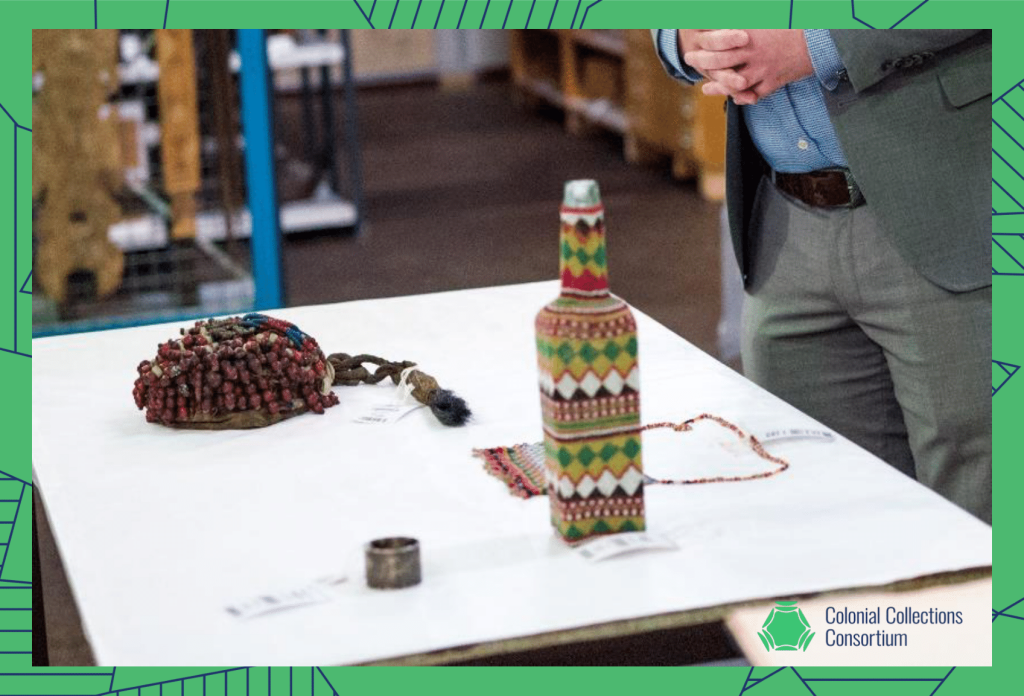
25 april 2025
The call for the knowledge exchange programme for young museum professionals ‘Sharing Stories on Contested Histories’ is now open for applications. The programme includes online sessions across five weeks and a one-week onsite programme in the Netherlands from 29 October to 5 November 2025. The deadline to apply is 26 May 2025.
Theme
How are we – museum professionals around the world – dealing with colonial collections? How do we critically engage with the museum’s own histories and reflect on their role in society in the face of these challenges? How can we handle collections created and collected during colonial times in more caring and ethical ways? How do we navigate and react to contestations over certain histories and heritage?
This knowledge exchange programme brings together a group of young professionals from around the world working in museums or collection-managing organisations to reflect on these questions and to exchange knowledge and experiences regarding their working practices.
About the organizers
Sharing Stories on Contested Histories is a project of the International Heritage Cooperation programme of the Cultural Heritage Agency of the Netherlands (RCE), executed together with the Reinwardt Academy (Amsterdam University of the Arts). With different editions in 2018, 2019, 2021, 2022, 2023 and 2024, Sharing Stories on Contested Histories approaches challenges in the field of cultural heritage that are widely shared by bringing together professionals from different countries to exchange perspectives and develop new knowledge and practices together. These challenges are not confined within national borders. We believe that it is only by joining forces that we can fully benefit from the potential of cultural heritage to address current challenges. Sharing Stories on Contested Histories aims to contribute to an international dialogue on the practices involved in navigating complex histories and their legacies today, and to strengthen the international heritage community.
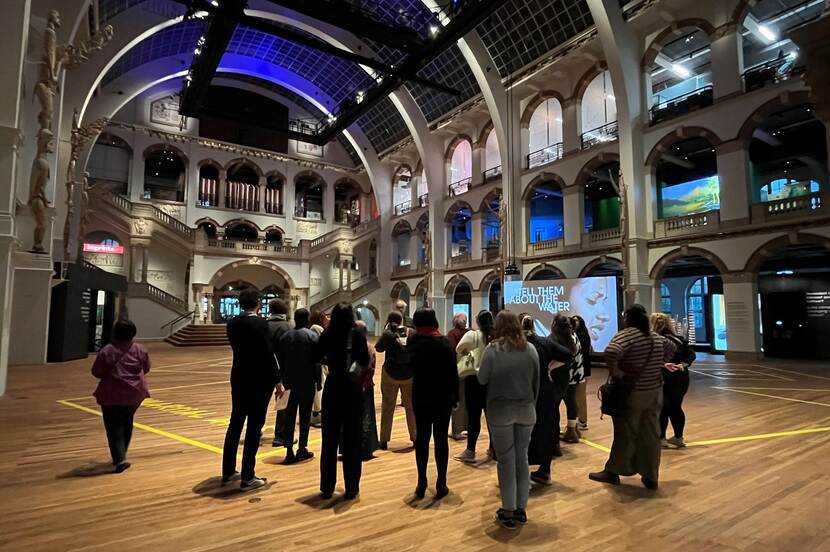
24 April 2025
This fellowship is intended for researchers from formerly colonised countries – including heritage practitioners, historians, archaeologists, social scientists, artists, journalists, and cultural activists – with an interest in (lost) collections or objects from those regions that are currently held in the Netherlands. We look forward to welcoming Panggah Ardiyansyah, Ganga Dissanayaka, and Leandro Matthews Cascon this September.
In September, the last three fellows of the NIAS-NIOD-KITLV Moving Objects, Mobilising Culture in the Context of (De)colonisation start their research projects. The fellowship enables researchers and heritage professionals from former colonized countries to conduct five months of research into ‘colonial collections’: objects and collections from those countries that arrived in the Netherlands in a context of colonialism. NIOD is involved in the fellowships as partner of the Colonial Collections Consortium.
Below, you can find more information about the fellows and their research projects.
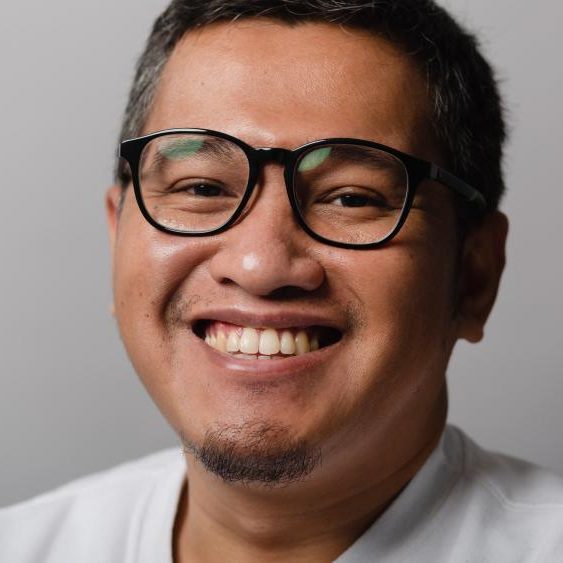
Panggah Ardiyansyah – Evocative Fragments: Archaeological Knowledge Production for Sendang Duwur and Its Dispersed Objects
Panggah Ardiyansyah’s research investigates the production of knowledge surrounding Sendang Duwur, a 16th-century Islamic complex in East Java, Indonesia. His project contributes to emerging scholarship on heritage politics, especially in relation to identity formation, inclusion/exclusion, and restitution frameworks. He will trace the networks of historical figures involved in the circulation of Sendang Duwur manuscripts, reconstruct the interventions by the Dutch East Indies’ Archaeological Service at the site in the early 20th century, and map the movements of manuscripts and artefacts associated with it.
Panggah Ardiyansyah would have started his project in February 2025, but the start date has been rescheduled to September 2025
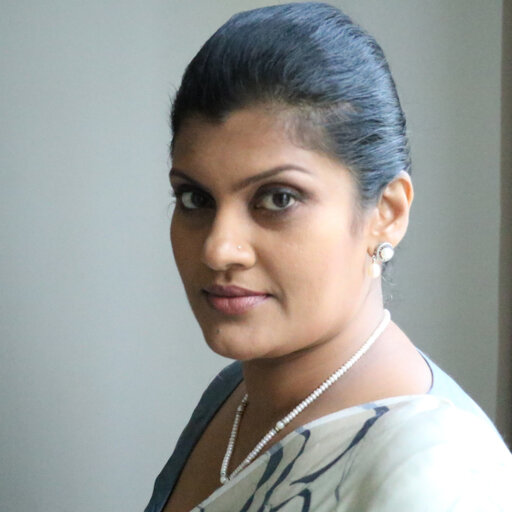
Ganga Dissanayaka – Tracing Object Biographies: Unveiling the Historical, Political, and Artistic Legacies of Sri Lankan Caskets and Jewellery in Dutch Collections
This research project explores how Sri Lankan artefacts – particularly caskets, jewellery, and statues – held in Dutch museums reflect complex narratives of cultural mobility, colonial entanglement, and historical memory. Centred on the methodology of ‘object biography’, the research treats artefacts as dynamic entities with evolving meanings. By tracing their journeys from creation and use in Sri Lanka to their current institutional contexts, Dissanayaka analyses how their stories intertwine with political, religious, artistic, and social histories. The project also addresses urgent questions around provenance, museum ethics, restitution, and postcolonial identity.
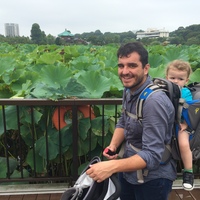
Leandro Matthews Cascon – Cultivating Objects
Cascon’s research, Cultivating Objects, explores the connections between Indigenous cassava agriculture in Suriname and related material culture preserved in Dutch colonial museum collections. Focusing on items such as graters, sieves, and fermentation vessels, the study highlights how traditional ecological knowledge is embedded in these tools.
Primarily based on objects in the Wereldmuseum, the project reveals sustainable Indigenous practices that contrast sharply with colonial models of resource extraction. It also considers broader themes such as food security, climate change, and cultural resilience, advocating for greater recognition of biocultural heritage and Indigenous land rights.
By working closely with museum collections, ethnographic sources, and Indigenous collaborators, Cascon’s research challenges dominant institutional narratives and foregrounds material traditions that have persisted despite colonial disruption. The project ultimately aims to offer new perspectives on sustainability and decolonisation.
7 April 2025
The exhibition Unfinished Pasts: return, keep, or …?, opening on 9 May at Wereldmuseum Amsterdam, offers an in-depth exploration of the current debate surrounding collections gathered during the colonial period and the question of restitution. Visitors are invited not only to learn about the provenance of cultural objects but also to reflect on ownership, value, and the ethical implications of a colonial history that continues to resonate in museum collections today.
Wereldmuseum and the restitution debate
Wereldmuseum is one of the institutions actively engaged in the debate around restitution, which has intensified over the past decade. The museum’s founding collection originated in the colonial period, a time when objects were often taken or looted from colonised territories without consultation or consent. Today, the museum is working closely with other museums and universities to address how best to deal with artworks in its collection that carry the weight of this colonial past.
The exhibition is rooted in Pressing Matter: Ownership, Value and the Question of Colonial Heritage in Museums, a major research project that brings together scholars and artists to investigate critical questions: How did these objects from different colonial contexts find their way into European museums? Were they purchased or stolen? What role did missionaries and scientists play? Who owns these objects? What is their value, and how should we engage with a heritage marked by a contested past?
It is a search for clarity that is becoming ever more urgent – particularly as former colonies increasingly call for the return of their cultural heritage.
A multi-layered debate
The exhibition explores the complexity of these questions through thematic sessions, each addressing a different dimension – from objects looted during military expeditions and legal discussions about what constitutes spoils of war or stolen art, to questions about scientific and cultural value and the legacy of cultural erasure. These themes are brought to life through 200 objects from the Wereldmuseum’s collection – objects that may seem ordinary at first glance but hold deep significance in their original cultural contexts.
Unfinished Pasts is an experimental, question-driven exhibition that invites visitors to think along with the museum about the ongoing pursuit of justice, reparation, and reconciliation. A key source of inspiration are the six contemporary international artists and collectives – Pansee Atta, Daniel Aguilar Ruvalcaba, Aram Lee, Zara Julius & Zoé Samudzi, Hande Sever & Gelare Khoshgozaran, Lifepatch – whose critical, creative, and emotional works offer alternative futures for this contested heritage. Their contributions give these complex questions a human face and bring them to life.
Visitors also get an insight into the questions museum staff grapple with on a daily basis. They encounter case studies of provenance research into objects that raise new questions about ownership, value, and the future of colonial collections. Notably, these investigations often lead to more questions than answers.
The exhibition Unfinished Pasts is on view from 9 May 2025 to 3 January 2027 at Wereldmuseum Amsterdam.
Pressing Matter
Pressing Matter is a four-year international research programme on colonial heritage, funded by the Dutch National Research Agenda (NWA) and coordinated by Vrije Universiteit Amsterdam. The project investigates how collections acquired during the colonial period can help us better understand the past and how that past continues to shape the present. It explores questions of ownership and value and the potential these collections hold for contemporary society, both in the Netherlands and the countries of origin.
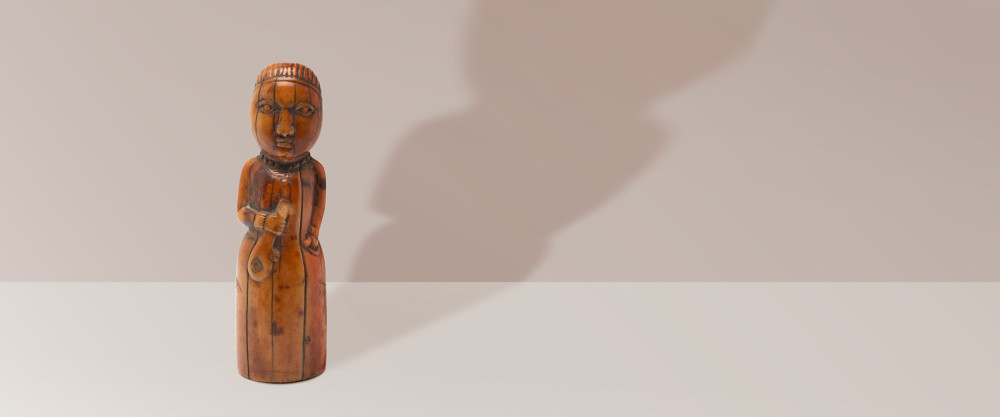
13 March 2025
A coalition of Amsterdam based Archives, Museums and Historical institutes* with the generous support of the Insinger Foundation has taken the initiative for a five-year programme that offers three two-month long fellowships per year for curators, archivists and historians in the field of slavery history. The fellowships are open to professionals working on the history of slavery in the Atlantic, the Indian Ocean and the Indonesian archipelago, linked to the Dutch involvement in slave trade and slave labour.
* Allard Pierson Museum/UB, Amsterdam Museum, Black Archives, IISG, NINSEE, Rijksmuseum, Stadsarchief Amsterdam, UvA, Wereldmuseum
Theme
The attention to the Dutch colonial slavery past has increased considerably over the last years. Especially communities that were subject to the contemporary ramifications such as systemic racism pushed for acknowledgement and changes in perspectives and priorities within academic institutions, museums and archives. A missing link is the input and expertise of inhabitants of societies that were colonized and where slavery and other forms of forced labour were rampant. The slavery past has a broad and pervasive impact, both in personal histories and the social structures of these societies. The questions, perspectives, and expertise of young professionals (especially historians, archivists, librarians, and curators) from societies affected by this colonial slavery past and its knock-on effects in the Americas, Africa, and Asia are essential to inform contemporary debates about and dealing with the slavery past. The fellowships aim to support this group of young professionals.
Call
Candidates are asked to write a motivation letter and a plan that includes their preference for one of the institutes in GSHF coalition and a rough idea on how they would like to spend their time in Amsterdam and what they expect from they stay.
What we offer
The fellowship includes free housing and covers travel costs, health insurance, as well as a monthly allowance up to a maximum of 1500 euros. We expect that the institutions to which candidates are affiliated continue to pay their monthly salaries for the duration of the fellowship.
Each year the programme can accommodate three fellows in the Spring (April-May) and three in the Fall (October-November).
Fellows will be based at the International Institute of Social History and – by mutual agreement – will be linked to their counterparts working in one of the Amsterdam Institutions united in the GSHF coalition.
The fellowship is meant to exchange perspectives and views between the fellows and their Amsterdam counterparts related to the history of slavery. The fellows are invited to work with the collections, archives, research or other ongoing projects at one or multiple of the Amsterdam heritage and research institutions. Please take a look at the websites of the partner institutions to explore their collections, archives, research and expertise.
For this round of fellowships, applicants might find it interesting to know that there is the opportunity to collaborate with special upcoming exhibition Justice and Unjustice: Trans-Atlantic Slavery and the Classical Antiquity at the Allard Pierson Museum.
At the end of each fellowship period there will be a public event where fellows and their Amsterdam counterparts reflect on the experiences gained during their stay.
The deadline for the call 2025 (October and November) fellowships is May 1st, 2025.
For more information and a list of the requirements, please click the button below.

19 February 2025
At the request of Nigeria, the Netherlands is returning 113 Benin Bronzes from the Dutch State Collection. This decision was taken by the Minister of Education, Culture and Science Eppo Bruins. In 1897 British soldiers looted these objects from the Kingdom of Benin (now part of modern-day Nigeria) and sold them. They eventually ended up in the Dutch State Collection. The Benin Bronzes are an important record of the history of the Kingdom of Benin and, thus, of great significance to Nigeria. The Bronzes, consisting of plaques, personal ornaments and figures, are currently housed in the collection of Wereldmuseum Leiden. The return of these objects is the result of intensive cooperation between experts and representatives of both countries.
Minister Bruins: “This restitution contributes to redressing a historical injustice that is still being felt today. Cultural heritage is essential for telling and living the history of a country and a community. The Benin Bronzes are indispensable to Nigeria. It is good that they are going back.”
The transfer agreement will be signed in Leiden on 19 February by Mr Bruins and Olugible Holloway, Director-General of the Nigerian National Commission for Museums and Monuments.
DG Holloway: ‘The return from the Netherlands will represent the single largest return of Benin antiquities directly linked to the 1897 British punitive expedition. We thank the Netherlands for their cooperation and hope this will set a good example for other nations of the world in terms of repatriation of lost or looted antiquities.’
The return follows the publication of an advisory report by the Colonial Collections Committee, chaired by Lilian Gonçalves-Ho Kang You. The objects will be returned to the Nigerian government, which will then decide how and where they will be displayed. The Wereldmuseum hopes that the return of the objects will not mark the end of the process, but rather serve as a starting point for further cooperation between museums in Nigeria and the Netherlands.
Return of objects by the municipality of Rotterdam
In addition to the return of 113 objects from the Dutch State Collection, on 19 February the municipality of Rotterdam will also be returning a further six objects that fall under the Benin Bronzes collection. These objects – a bell, three relief plaques, a coconut casing and a staff – were also looted in 1897.
Said Kasmi, a member of the Rotterdam municipal executive: ‘Art and heritage should be where they belong. These objects belong in Nigeria. By returning them, we’re taking an important step towards recognising the past and respecting the value these objects hold for Nigeria.’
Advisory report published by the Colonial Collections Committee
On the basis of a provenance investigation conducted by the Wereldmuseum and the municipality of Rotterdam, the Colonial Collections Committee advised the minister to return these objects in line with the Netherlands’ colonial collections policy. This advisory report resulted from close consultation and collaboration with the Nigerian National Commission for Museums and Monuments. The Committee published the report on its website. This is the fifth time that the Netherlands is returning objects as a direct result of an advisory report by the Committee. The Committee is currently drawing up advisory reports in response to requests submitted by Sri Lanka, India and Indonesia.
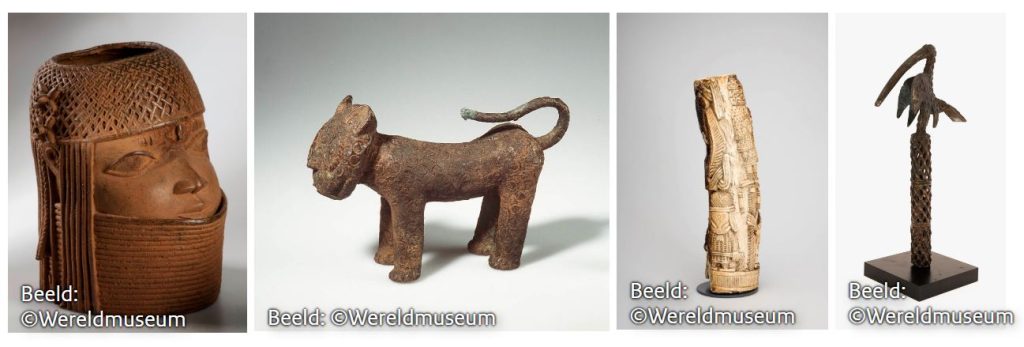
17 January 2025
In response to a request by the United States and the Ysleta del Sur Pueblo of Texas, and on the advice of the Colonial Collections Committee, Minister of Education, Culture and Science Eppo Bruins will be returning seven objects from the Dutch National Art Collection.
Ysleta del Sur Pueblo is a federally recognised tribe by the United States government that was colonised first by Spanish settlers in the 17th century. In the late 19th century the objects in question (including a shield and musical instruments), which are of great importance to the Ysleta del Sur Pueblo, were wrongfully brought to the Netherlands.
On the basis of a provenance investigation conducted by the Wereldmuseum, the Colonial Collections Committee advised the minister to return these objects in line with colonial collections policy. The investigation revealed that the collector of these objects used force, threats and bribery to obtain items for his collection.
The Committee’s advisory report, which was drawn up in dialogue with representatives of the Ysleta del Sur Pueblo, is available on the Committee’s website. Arrangements for the swift return of the objects will be made in consultation with representatives of the United States and the Ysleta del Sur Pueblo.
NIAS – NIOD – KITLV Fellowship call now re-opened for two fellows15 January 2025
This fellowship is intended for researchers from source countries – including heritage practitioners, historians, archaeologists, social scientists, artists, journalists, and/or cultural activists – with an interest in (lost) collections or objects from those countries or regions that are kept in the Netherlands. Two fellows will be selected in the academic year 2025- 2026: both in the first semester (Sept 2025 – Jan 2026). The fellowship is funded by the Dutch Ministry of Education, Culture and Science through the Colonial Collections Consortium.
- Theme: Moving objects, Mobilising Culture in the Context of (De)colonisation
- When: two fellowships in the academic year 2025-2026, starting September 2025 until January 2026
- Who: researchers or professionals that have a relevant working background (selected amongst historians, archaeologists, social scientists, heritage experts, artists, journalists and/or cultural activists) based in formerly colonized countries with collections in the Netherlands
- Term: five months
- Deadline: 17 March 2025, 12.00h (noon) CET
- Contact: Annette Mullink, Selection officer Partnered fellowships, partners@nias.knaw.nl
25 November 2024
The city of Rotterdam has become the first in the Netherlands to return art objects from the colonial era to Indonesia. The restitution involves two singa statues from Lombok and 66 objects from South Bali, which were held by the Wereldmuseum. This return is a significant step in implementing the national policy framework on the restitution of colonial collections. Previously, several objects from the national collection were returned as part of a broader government initiative. With this move, Rotterdam contributes to acknowledging and addressing the injustices suffered by the indigenous populations of the former colonies.
Adressing historical injustice
The objects, part of the so-called Lombok Treasure and the Puputan Badung Collection, were seized at the end of the 19th and early 20th centuries during military actions by the Dutch colonial army. Research has confirmed that these objects were taken against the will of their rightful owners and under duress.
Alderman Said Kasmi (Education, Culture, and Events): “Rotterdam acknowledges that the artworks we are returning today were never ours to keep and belong in Indonesia. With this restitution, we take an important step in addressing colonial injustices. It is a gesture of respect for the Indonesian culture and the history that we share.”
Ambassador Mayerfas, Republic of Indonesia: “These pieces are more than artefacts; they are symbols of identity and resilience, embodying the rich cultural heritage of Indonesia. Let today remind us that cultural repatriation is a collective responsibility and an essential step toward healing and reconciliation from the past.”
The objects
The restitution includes two singa statues from the palace of Cakranegara in Lombok, which were looted in 1894 during the so-called Lombok War by the Royal Dutch East Indies Army (KNIL). A singa is a mythical lion symbolising support and protection, often used in temple and palace architecture. These statues were previously exhibited at Wereldmuseum Rotterdam.
Additionally, 66 objects from the Puputan Badung Collection are being returned, including ceremonial weapons, jewellery, textiles, and other cultural items. These were seized on the battlefield and from the palaces and temples of the Badung Kingdom during the 1906 conquest of South Bali by the Dutch colonial army.
Indonesia requested the return of these objects due to their cultural and historical significance. They are vital pieces of the nation’s heritage, connected to key events in the history of Bali and Lombok. After their return, some of these objects will be displayed at the Museum Nasional in Jakarta, where they will contribute to preserving Indonesia’s cultural history.
Collaboration
The city of Rotterdam is working closely with Indonesia and the Wereldmuseum to ensure a careful restitution process. The Wereldmuseum will oversee the transportation and transfer of the objects to Indonesia later this year.
Marieke van Bommel, Managing Director of the Wereldmuseum: “We are pleased that these objects are returning to Indonesia. They hold immense cultural significance for the Indonesian people and should never have been here. We are grateful for the excellent collaboration with our Indonesian partners, the Municipality of Rotterdam, and the Ministry of Education, Culture, and Science in making this restitution possible.”
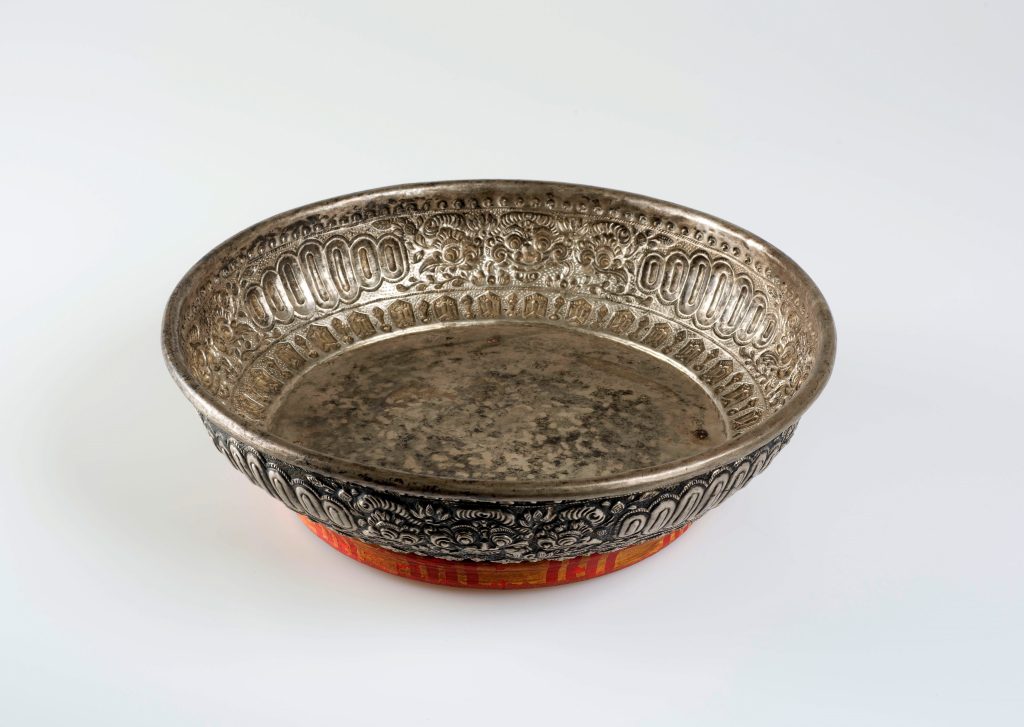
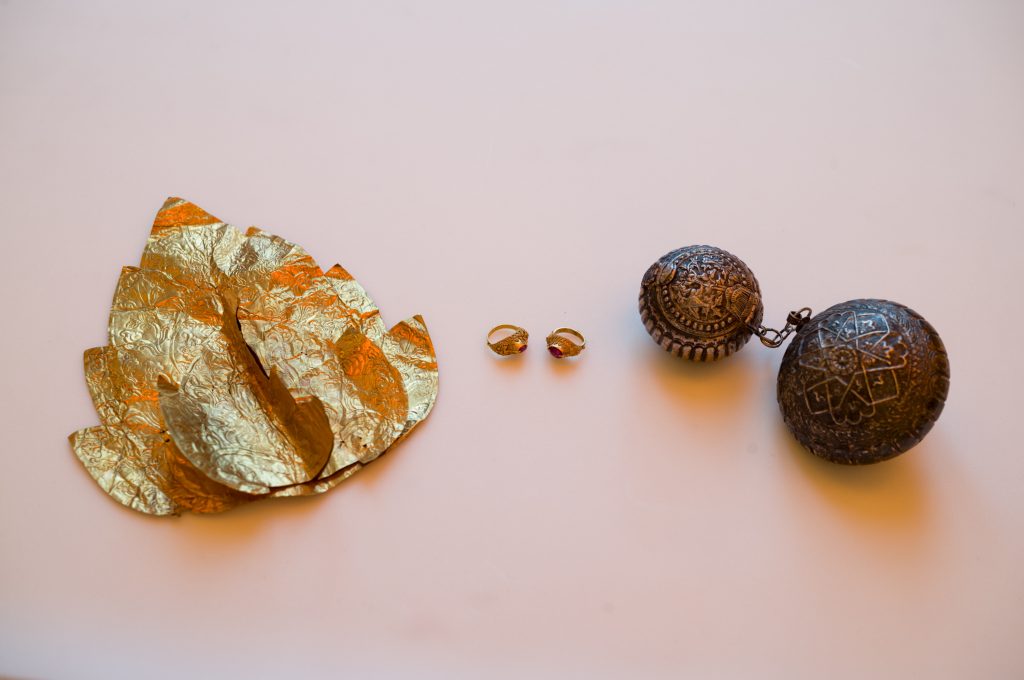
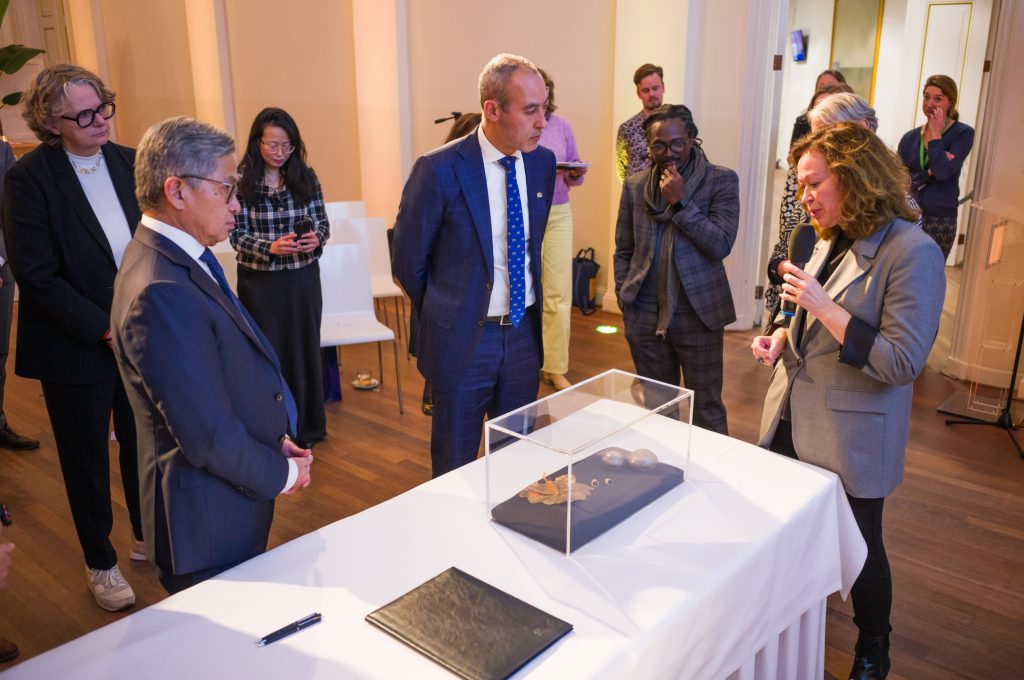
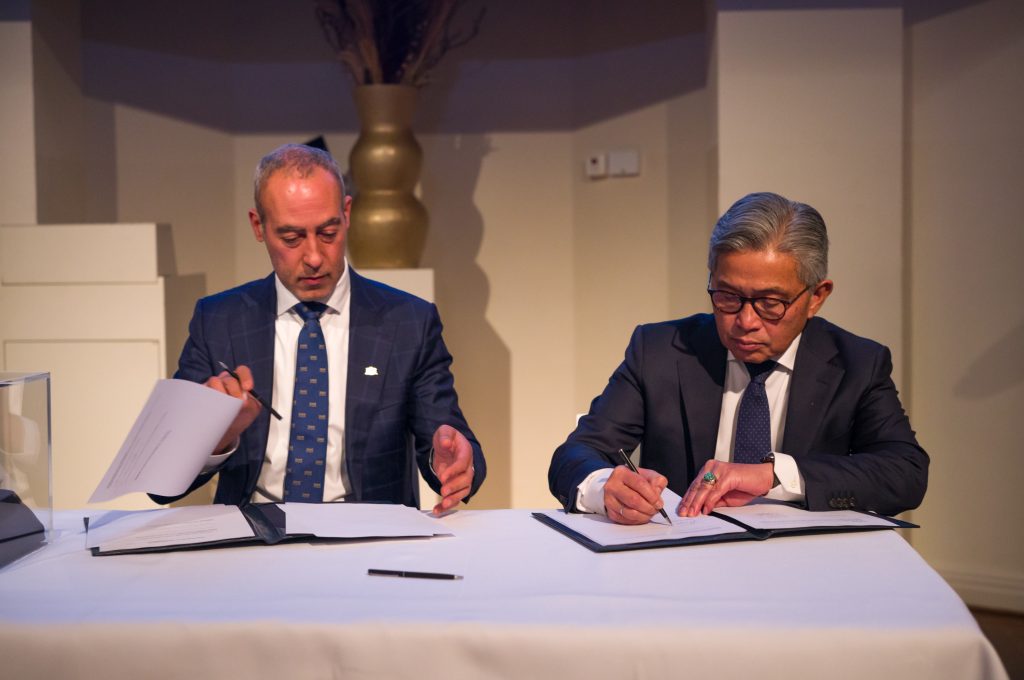
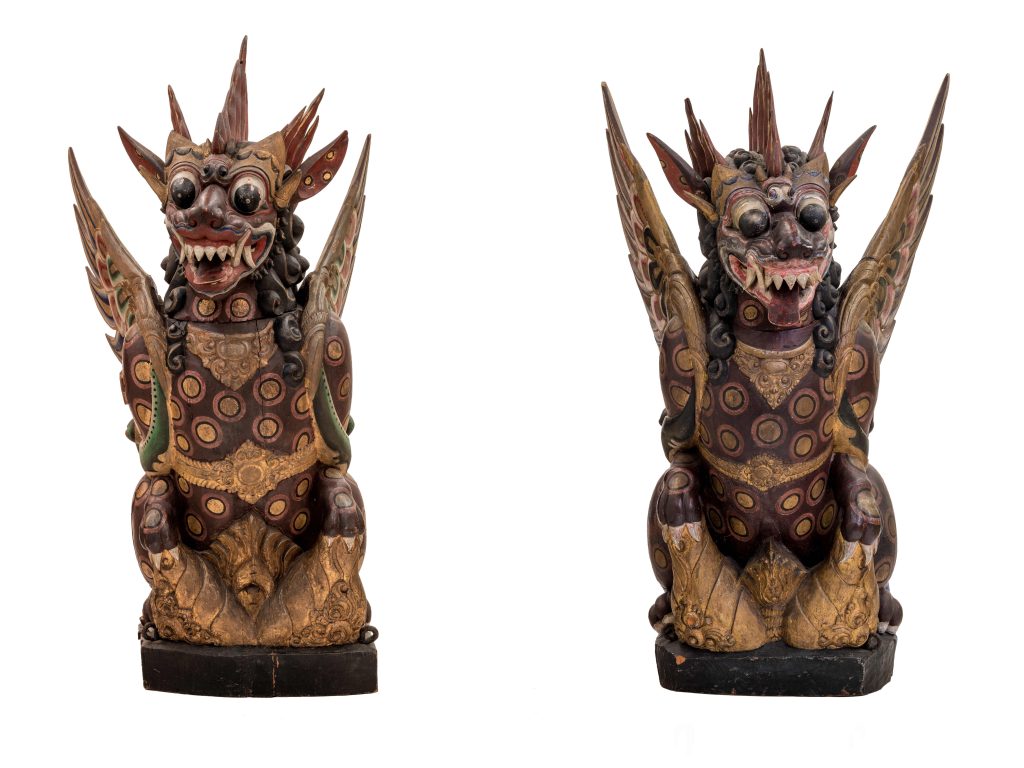
7 November 2024
Does your museum manage collections and objects from colonial contexts and would you like to do provenance research on these? Are you a curator and would you like to carry out this provenance research in collaboration with another museum? Or would you like to map the provenance history of a specific group of objects from your own collection for which there are indications that they were acquired in a colonial context? You can submit an application to the Consortium Colonial Collections for (partial) funding of this research.
About the grant
The Dutch Ministry of Education, Culture and Science has made budget available for provenance research on colonial collections. Dutch heritage institutions, located in the country of the Netherlands, that manage collections, such as museums, universities, archives and libraries, can submit applications for this budget to the Consortium Colonial Collections under the “Regeling Herkomstonderzoek Koloniale Collecties”. A total of EUR 500,000 is available that will be awarded to provenance research projects in two rounds. The first round of applications closes 15 March 2025. The closing date for the second round is 15 July 2025.
About provenance research
Provenance research is an important part of careful collection management, as mentioned in ICOM’s Code of Ethics for Museums. The institution managing an object is responsible for researching its provenance. To encourage collection managing institutions to prioritize research into the provenance of objects from colonial contexts, the “Regeling Herkomstonderzoek Koloniale Collecties” was established.
The information about this grant is available in Dutch.